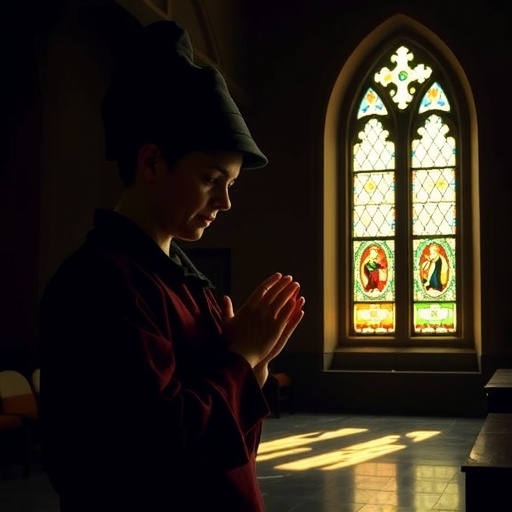The landscape of religious education within Catholic schools in the Republic of Ireland is at a pivotal juncture, as highlighted in the recent article by Meehan and O’Connell. Their comprehensive analysis delves into the various facets that define the future of religious education against the backdrop of an evolving societal framework. This inquiry is not just timely but essential, given the rapid changes observed in Irish society, particularly in the realms of secularization and cultural diversity.
At the core of the discussion is the interrogation of the relevance of traditional religious education in a country that is increasingly characterized by pluralism and secular values. For decades, Catholic schools in Ireland have served as bastions of faith-based learning, shaping the moral and ethical frameworks of countless students. However, as population demographics shift and attitudes towards religion evolve, educators and policymakers are forced to reassess the curricular priorities of these institutions.
The authors argue that the future of religious education in Catholic schools must adapt to the realities of contemporary Irish society. One of the central themes of their study is the need for an inclusive curriculum that acknowledges and respects the diverse religious and non-religious perspectives present among students. This approach could foster a more comprehensive understanding of spirituality while promoting tolerance and respect in an increasingly multicultural environment.
Meehan and O’Connell also highlight the challenges that Catholic schools face in maintaining their identity while responding to societal changes. Many educators express concerns about the potential dilution of religious teachings, fearing that a more inclusive approach could undermine the distinctiveness that defines Catholic education. However, the authors contend that embracing diversity within the religious education framework could enhance rather than detract from the unique character of these institutions.
Furthermore, the research addresses the pedagogical methods employed in religious education. Traditional approaches, heavily reliant on rote learning and doctrinal instruction, may no longer be effective in engaging students who are increasingly questioning normative assumptions about faith and belief. By integrating more interactive and discussion-based methodologies, educators can encourage critical thinking and meaningful engagement with religious concepts, thus revitalizing the curriculum.
The integration of technology in education also emerges as a key topic in this discourse. As digital platforms become ubiquitous, there is immense potential to use these tools to enhance the delivery of religious education. Online resources, virtual discussions, and multimedia content can provide students with diverse perspectives and engage them in a broader dialogue about faith. Meehan and O’Connell suggest that leveraging technology could create innovative educational experiences that resonate with modern learners and encourage exploration beyond traditional confines.
In their assessment, the authors also reflect on the role of teacher training in shaping the future of religious education. Professional development programs designed to equip educators with the skills and knowledge to navigate the complexities of diverse classroom environments are essential. Educators must be prepared not only to teach religious content but also to facilitate discussions that respect and honor differing beliefs. This professional growth is vital in ensuring that teachers can provide a safe and inclusive space for all students.
Meehan and O’Connell’s article underscores the importance of stakeholder engagement in shaping the future of religious education in Catholic schools. Parents, religious leaders, and the broader community must collaborate in forming an educational environment that reflects shared values while embracing diversity. Collaborative efforts can foster a sense of communal responsibility towards religious education, ensuring that it remains relevant and meaningful to students.
Moreover, as the authors point out, the impact of national educational policies cannot be overlooked. As Ireland grapples with a shifting cultural landscape, the governmental approach to education will inevitably shape how religious instruction is implemented. Policymakers must strike a balance between preserving the rights of religious schools and adapting to the comprehensive educational needs of all students.
In conclusion, the future of religious education in Catholic schools in the Republic of Ireland is a multifaceted question. As Meehan and O’Connell articulate, the pathway forward is not clearly defined, nor is it without its challenges. However, with an informed approach that embraces inclusivity, innovative pedagogy, and community involvement, there exists the potential for a revitalized vision of religious education that may thrive within the broader societal context. This evolution is not merely an academic exercise; it reflects the ongoing journey of a nation seeking harmony between tradition and modernity.
By addressing these critical issues, Meehan and O’Connell have provided a significant contribution to the discourse surrounding religious education in Ireland. Their insights challenge educators, policymakers, and communities alike to reflect on their values and priorities in an era where the role of faith in public life continues to be contested.
As the debate around the future of religious education unfolds, it will undoubtedly remain a pressing concern that intersects with broader societal themes, echoing the sentiments of a nation in transition. Through thoughtful dialogue and collective action, stakeholders can work towards systems of education that honor both heritage and diversity, cultivating a more informed and compassionate society for generations to come.
Subject of Research: The future of religious education in Catholic schools in the Republic of Ireland.
Article Title: Does Religious Education in Catholic schools in the Republic of Ireland have a future?.
Article References:
Meehan, A., O’Connell, D. Does Religious Education in Catholic schools in the Republic of Ireland have a future?.
j. relig. educ. 72, 357–373 (2024). https://doi.org/10.1007/s40839-024-00238-z
Image Credits: AI Generated
DOI: 10.1007/s40839-024-00238-z
Keywords: Religious education, Catholic schools, Ireland, inclusivity, pedagogy, secularization, cultural diversity.




